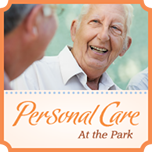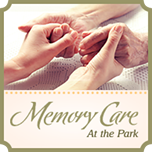As the number of Alzheimer’s disease and dementia patients rises, so has the number of treatment options for these cognitive impairment disorders. Research facilities all over the world have been in search of the miracle cure that can stop and ultimately reverse the effects of the different types of dementia. Unfortunately, nothing has been created so far, but minor breakthroughs are occurring.
Specific treatment options have been discovered that help dementia patients manage their symptoms and show signs of cognitive improvement, though temporary. These treatment options do not promise a miracle cure, but do provide brief moments of clarity. They include:
Art Therapy
Art therapy is an effective means of communication. Often times, those affected by dementia have a hard time expressing themselves. By giving your loved one an empty canvas and a full palette of colors, you’re giving them the opportunity to express what they’re thinking and feeling, even if it simply involves choosing a color that aligns with their mood. In doing so, you’re providing them the opportunity for brain stimulation that provokes activity on a cognitive, sensory, and emotional level. As a result, an individual may have an improvement in their mood due to a decrease of anxiety. Their emotions become positive ones and their overall well-being is increased. This is because all humans have the need to express themselves. People with dementia still have that urge but lack the ability to do it or find it extremely difficult to do so. Art therapy makes it easier for them to access their feelings.
Music Therapy
According to the Alzheimer’s Foundation of America (AFA), “rhythmic and other well-rehearsed responses require little to no cognitive or mental processing. A person’s ability to engage in music, particularly rhythm playing and singing, remains intact late into the disease process because, again, these activities do not mandate cognitive functioning for success.” As a result, music therapy is an effective means to treat dementia symptoms. It allows for memory recall. We often attach memories to familiar songs, so when we hear them again, that same memory is still attached. Music therapy invokes brain stimulation much like art therapy. This, again, acts as a mood booster for someone with dementia and increases opportunities to interact socially with others.
Pet Therapy
A final form of therapy for a person with Alzheimer’s or dementia is pet therapy. This involves highly trained cats or dogs that act as companions for aging adults. Research has shown that someone with Alzheimer’s or dementia can recognize these furry faces as friendly. In turn, they’re highly likely to interact with them in a positive sense. Social interactions, even with an animal, are very important for people with dementia. It reduces agitation and increases their peace of mind. It’s also a feeling of comfort if they had pets sometime in their life.
Therapy animals can also help seniors receive more exercise. They can take the animals on short walks, as these animals are trained to be well-behaved on the leash. They walk right alongside whoever is holding it. That way a senior can walk at their own pace, and have a wonderful companion by their side during the entire duration of the walk. It’s a win-win for someone with Alzheimer’s or dementia!
Try Different Treatments with your Loved One
These are simply 3 examples of various therapies that provide brief moments of clarity to elderly loved ones. There are more out there and more specific forms of art therapy, too. However, these treatment options do not demand much upkeep. If you have paper and crayons, your loved one can participate in art therapy. If you have an iPod and a list of their favorite songs, they can participate in music therapy. Pet therapy requires animals with special training, but they are not rare to find. If you believe a loved one would benefit greatly from any of these various treatment options include it in your daily activities. You may just see their mood improve as well at their social interactions!











